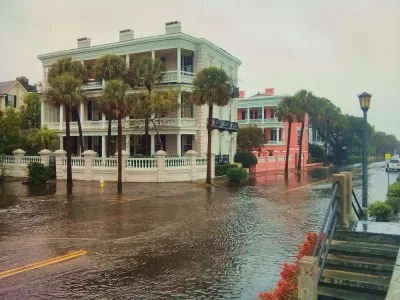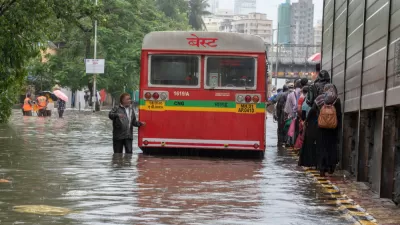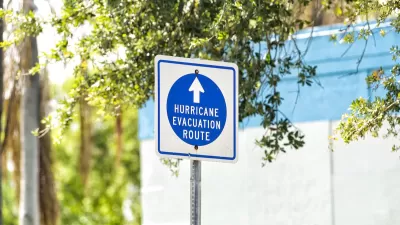Drawn by affordable property, low taxes, and job opportunities, high numbers of Americans continue to move to flood-prone areas even as the threat of catastrophic flooding grows.

Despite growing flood risks, developers continue to build—and cities continue to approve—housing in threatened areas and flood plains to accommodate growing populations. An article by Anna Phillips in the Washington Post describes the lack of urgency shown by many cities when it comes to planning for future disasters.
Yet “In 2019, the Congressional Budget Office estimated that hurricanes and tropical storms cause about $54 billion, on average, in annual damage across the United States.” However, “Realtors aren’t required to disclose the flood history of the properties they sell and finding that information can be difficult. In addition, many of the Federal Emergency Management Agency’s flood maps are decades out of date and don’t account for sea level rise or flooding from sudden rain storms.” This means people continue to move to flood-prone areas of the Southeast, attracted by mild climates, affordable housing, and job opportunities. According to Phillips, “Census projections suggest the Southeast will see the largest population gains over the next two decades, through 2040.”
Some cities are starting to update building codes, encourage inland development, and fortify their shorelines against future flooding. “But these types of projects are still relatively rare and, so far, most have not attempted to slow down development,” Phillips points out.
FULL STORY: More Americans are moving into hurricane zones even as climate risks mount

Planetizen Federal Action Tracker
A weekly monitor of how Trump’s orders and actions are impacting planners and planning in America.

Restaurant Patios Were a Pandemic Win — Why Were They so Hard to Keep?
Social distancing requirements and changes in travel patterns prompted cities to pilot new uses for street and sidewalk space. Then it got complicated.

Map: Where Senate Republicans Want to Sell Your Public Lands
For public land advocates, the Senate Republicans’ proposal to sell millions of acres of public land in the West is “the biggest fight of their careers.”

Maui's Vacation Rental Debate Turns Ugly
Verbal attacks, misinformation campaigns and fistfights plague a high-stakes debate to convert thousands of vacation rentals into long-term housing.

San Francisco Suspends Traffic Calming Amidst Record Deaths
Citing “a challenging fiscal landscape,” the city will cease the program on the heels of 42 traffic deaths, including 24 pedestrians.

California Homeless Arrests, Citations Spike After Ruling
An investigation reveals that anti-homeless actions increased up to 500% after Grants Pass v. Johnson — even in cities claiming no policy change.
Urban Design for Planners 1: Software Tools
This six-course series explores essential urban design concepts using open source software and equips planners with the tools they need to participate fully in the urban design process.
Planning for Universal Design
Learn the tools for implementing Universal Design in planning regulations.
Heyer Gruel & Associates PA
JM Goldson LLC
Custer County Colorado
City of Camden Redevelopment Agency
City of Astoria
Transportation Research & Education Center (TREC) at Portland State University
Camden Redevelopment Agency
City of Claremont
Municipality of Princeton (NJ)





























